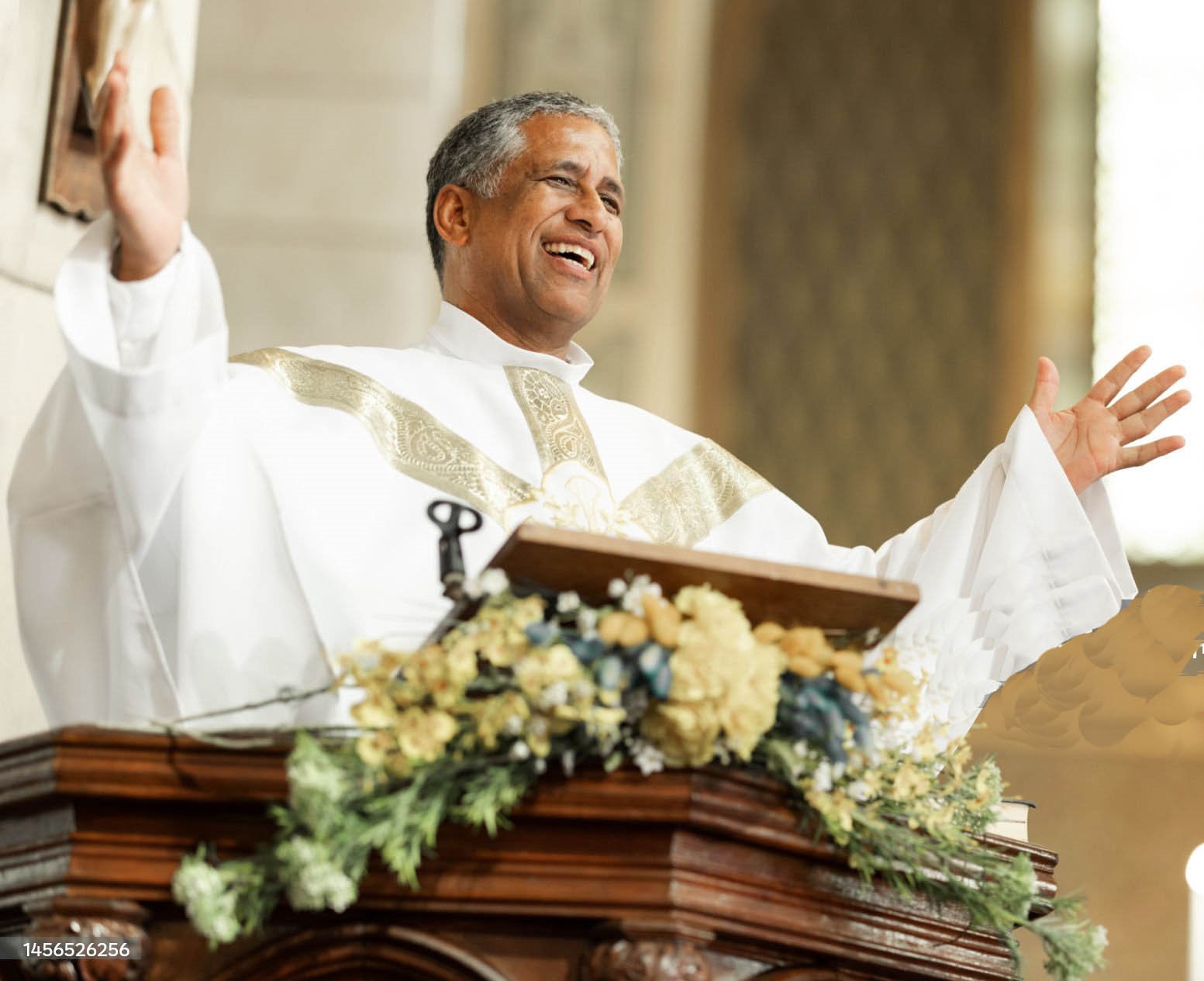- Featured Favorites
How to Preach against Artificial Contraception
by Michael Pakaluk
Summer 2024
In my now 40 years as a Catholic, only once have I heard a priest as homilist teach that artificial contraception (“contraception”) is a sin—even though contraception is materially a serious sin, harms a couple regardless of their intentions, and damages the common good of society. This is out of over 12,000 homilies, given by good and faithful priests.
We can admit that much good comes of a pastor’s simply stating the Church’s teaching here, not infrequently. To do so takes away the perception that teaching is an embarrassment. It supports couples who are trying to follow the teaching, while it encourages others to do so, because any teaching is strengthened if each couple can consider, reflexively, “we know that the others know that we know” that the teaching is meant to be followed. Only in such a way, indeed, can a doctrine itself become a common good.
But a homily against contraception—that presents its own difficulties. To which Scripture readings could such a homily be linked? And how does one avoid offending and turning away couples who are not following that teaching? After all, bad consciences can breed anger, and ignorance too.
I am not a priest or a homilist but a married layman and father of a large family. Perhaps my advice can be useful nonetheless. When I was becoming a Catholic, I worked through the arguments and documents and came to see that contraception is wrong.
How, then, would I advise a priest of goodwill?
Do not try to cover everything at once—I would insist—but rather go slowly. Break the topic into four homilies spread out over four years. During this time, have available for free or at a subsidized price in the vestibule to the church, to support what you are teaching: pamphlets of Pius XI, Casti Canubii, and Paul VI, Humanae Vitae; Mary Eberstadt’s book, Adam and Eve after the Pill; and some good literature on NFP. Each year during this time ask a couple who are leaders in the parish to form a reading and discussion group on one of these texts—a different couple each year, with a new group of members. See if the members themselves can be chosen from among leaders in the parish. In this way the teaching will become talked about and be diffused.
For the first year and first homily, have a simple goal. Aim to convey this one idea: the Church’s teaching about contraception was what all of Christendom believed, Protestants as well as Catholics, until 1930. In that year, the Lambeth Conference of Anglican bishops became the first respectable authority to hold that married couples only, in very unusual circumstances, might possibly be justified in using contraception It was in response to Lambeth that Pius XI wrote Casti Canubii.
The point is that the Catholic Church has not taken a strange and difficult position. It is holding fast to historic Christian teaching. This point can be presented uncontroversially as a simple matter of fact. Therefore, it will not threaten anyone. At the same time, it ought to pique the congregation’s curiosity.
You might find it useful to quote from a story and an editorial from the Washington Post at the time. I have found it very effective to do so in my own teaching. Soon after Lambeth, the Federal Council of Churches in America, following the Anglicans, made a similar change in their teaching.
The Washington Post attacked them strenuously for abandoning Christian principles. This is good proof that the Catholic view used to be “everyone’s view”— just as we can be confident that, if our civilization survives, it will become the common view again, in the future. You can find those remarkable articles at https://canfp.org/wp-content/uploads/2024/07/Washington-Post-Birth-Control-Articles.pdf
Because this first homily emphasizes that God’s teaching about marriage remains constant, even if mere human authorities teach something different, it may profitably be linked to those passages where our Lord teaches against divorce—that “from the beginning” it was not so, and “what God has joined together” (including the procreative and unitive dimensions of the marital act) “man may not put asunder” (Mt 19:6, Mk 10:9, Lk 16:18).
In the second year and homily, have the simple goal of discussing the effects, or consequences, of the widespread use of contraception within society. This topic, too, is not threatening, because it deals with society in general; it will not seem to draw attention to the couples within your parish.
There are five main effects. Many of these were foreseen by Pope Paul VI in Humanae Vitae. Therefore, it can be effective to quote from this encyclical from the pulpit.
• First, contraception leads to promiscuity, because it leads people to think of sex as something trivial, for entertainment or mere pleasure.
• Second, contraception leads to abortion, because it encourages couples to have intercourse in circumstances in which they are not prepared to welcome and raise a child.
• Third, contraception leads to lowered views of women, because they come to be seen as objects for the satisfaction of men.
• Fourth, because contraception involves the separation of sex from procreation, it leads to widespread acceptance of non-procreative sex acts, as also anti-life practices such as IVF.
• Fifth, because in contraception human beings claim a power over nature which they do not have, its widespread use invites public authorities to claim a similar power—which is precisely what happened in China, in its One Child policy.
This second homily can be linked to Romans 1 and also the verses where Jesus says that we can tell a tree by its fruit (Mt 7:15-20, Lk 6:43-45).
In the third year and homily, a homilist can discuss the marital act directly, though discreetly. Here he should draw on his own prayerful study of the texts mentioned, as well as the catechetical instructions of St. Pope John Paul II on the Theology of the Body. He might explain how, when the Church says that the unitive and procreative dimensions “should” not be separated, it means that the attempt to separate them destroys each. Sex does not become unitive at all, or in the right way, if it is not open to procreation; similarly, procreation becomes fragmentary and even inhuman if a child comes into existence other than in the marital embrace.
This homily, too, can be linked to the passages where Jesus taught about the unity of marriage “from the beginning.” The homilist can also point out that it is not by accident, surely, that immediately after teaching about marriage Our Lord teaches “do not hinder the little children from coming to me” (Mk 10:13-16).
In the fourth year and homily, the homilist, drawing on his own pastoral experience, can explain how much good comes to couples from putting NFP into practice—for their relationship, their virtues and their spiritual maturity. Almost any passage from St. Paul about charity or marriage can provide an appropriate basis in Scripture.
It is possible to preach “against” contraception. By following the plan I have described, or a similar plan, a priest can lead his parishioners to appreciate the riches of the Church’s teaching on the marital embrace, with little risk of angering or appearing to condemn anyone.
About The Author



